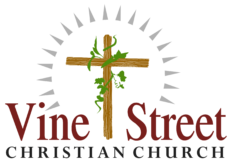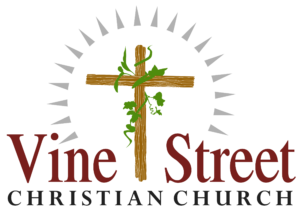
Thoughts on Easter Baptism

I wonder if there were any other baptisms in our local churches this Easter. Of course, Easter is a traditional time for baptisms, but in the COVID-19 times in which we live, the act of immersing someone in a pool of water may not seem like the safest of things to be doing. But that kind of thinking really misses the point.
The act of being “baptized” isn’t about the water as much as it is about the Holy Spirit. Sometimes the church can confuse the congregants by their formulaic approach to a very personal and intimate decision between them and God.
In our denomination at Vine Street Christian Church, we are advised that a good time for a person to be baptized is when they’re in the 5th grade. And I have baptized many young people because this formula says that the time has come. And perhaps it has. We do our best to prepare young people for baptism by teaching them the purpose and meaning of baptism and exploring various scripture verses which relate to such a decision. But only they and God can determine the right time. Not their church.
To help one assess if God is calling them to be baptized, I personally like to use the questions Jesus himself uses to get at the real heart of the matter of making a lifelong commitment to Christ. “What are you seeking?” “Who do you say that I am?” “What do you want me to do for you?” “Why are you worried?” Questions like these can help go beyond the church formula that’s it’s time to be baptized when you’re in the 5th grade, for example, to a much deeper personal commitment to God.
And that’s so important. True baptism is not just a rite of passage in one’s church life, but most importantly it is a bold and daring proclamation one makes that they have decided to no longer live for themselves, but instead to live solely for Jesus. It doesn’t matter what grade one is in. All that matters is that the heart is yearning to die to self and live for Christ.
Christian churches throughout the world can, and do, make up rules and requirements about baptism; things like whether one should be immersed, poured upon, or sprinkled by water, or whether one must pass some sort of “purity” test to be baptized in “their” church (beware divorcees, gays, unmarried couples, non-members of the church, free thinkers, and all other heretics and lepers in the eyes of the church).
As with many things sacred, we like to turn them into more worldly and secular acts by establishing our own set of terms and meanings for things intended to be divine, and according only to God’s will. Walk into just about any church, and study the various denominations, and you will uncover a slew of policies and guidelines for things that Jesus never mentioned or cared about, even though He already knows all about them!
This list of rules and policies might be endless, it seems: How to take communion, and who can take it; What church membership requires of a person; What kind of music is allowed in worship; What moral code must be met to participate in church; What clothing attire is acceptable on Sunday mornings; What translation of the Bible must be used; What gender, age, and lifestyle is suitable to be an elder; who is allowed to have a key to the church … and on and on it goes. Churches can take these things very seriously!
And none of them, none, is part of the ministry and teaching of Jesus Christ. And especially curious to Jesus followers today is that many of these kinds of things are inherited directly from the first century Pharisees, the very group that could not see God when He was standing right in front of them telling them what God desires of them. They preferred their own traditional way of doing things. So they killed Jesus. And so it goes.
This past Easter Sunday, I baptized a 92 year-old woman who was being called to a deeper relationship with Jesus. That woman is my mom, Lois! For her baptism, we poured water on her head to symbolize the reception in her heart of the Father, the Son, and the Holy Spirit.
But it wasn’t the water that baptized her. It was God … sent down upon her by the Holy Spirit — just as it was for Jesus. When John the Baptist raised Jesus from the water, he was not baptized by the water. But then the Holy Spirit came down upon Him, like a dove (not an actual dove, but the Spirit was “like a dove”) and the Father verbally responded to Jesus, in His heart, that he was well pleased with His Son. Now, that’s baptism!
I’m not sure how many church or denominational rules and policies I broke on Easter morning. But even if I broke 500 such restrictions, I could never match the number of church rules and policies that Jesus broke. But still, He didn’t come to break rules; it just ended up that way. He came to free us from rules, and polices, and prejudices, and biases, and all other church-prescribed ways of controlling the way we give away our lives to Jesus. He came to place himself in the very center of our lives, so that everything we do, including church, is based on his way, for He is the way, the truth, and the life. Not us.
I have no question that my mom’s baptism on Easter was anything less than a profound spiritual experience in which God was leading her and our congregation, and we were following. I have no doubt that the water used for that baptism was holy, yes, but a mere symbol of the power of God working with the things of creation to compel the Holy Spirit to rest upon yet another true disciple of Jesus. My mom, in case you don’t know her, has spent a lifetime, and will continue forever, exploring those questions of Jesus, embracing the mystery that is God, and being a faithful follower of Him and of His church.
I love my Mom for so many reasons, but especially on Easter for reminding me, and all of us, what it means to give your life away to God, and to receive the power of the Holy Spirit through baptism! Pastor Bob <>< Vine Street Christian Church

